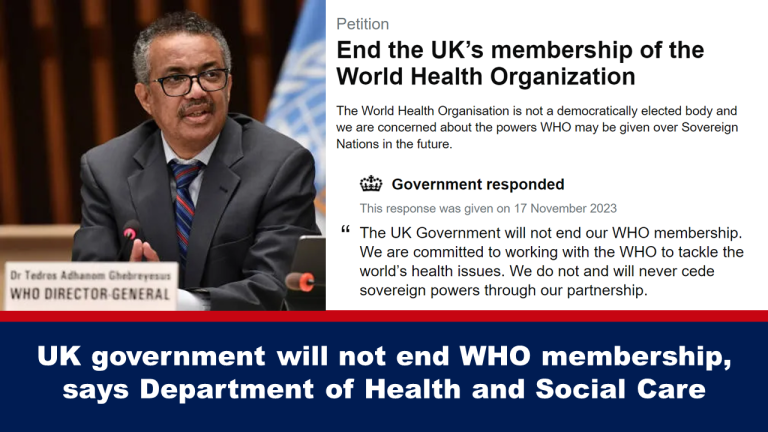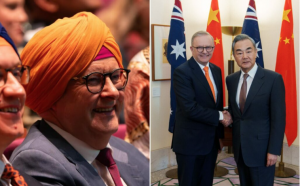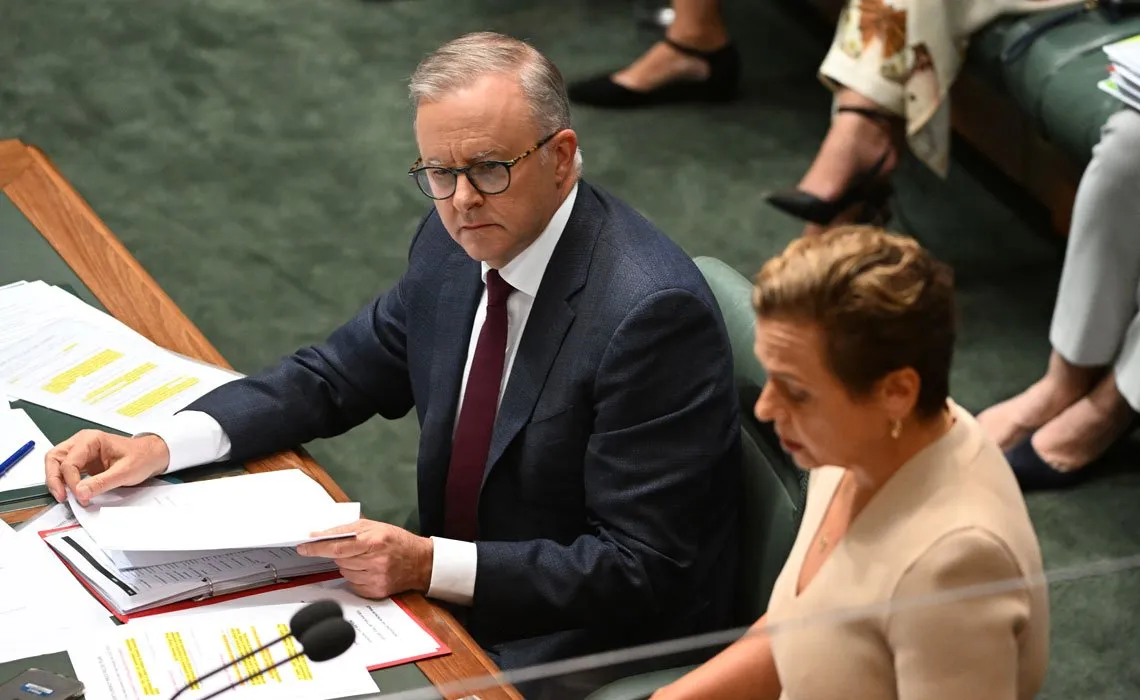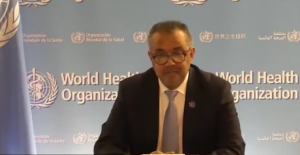UK government will not end WHO membership, says Department of Health and Social Care

In response to a petition to end the UK’s membership of the World Health Organisation (“WHO”), the Department for Health and Social Care has stated: “The UK Government will not end our WHO membership.”
A petition to Parliament to end the UK’s membership of WHO has obtained just under 60,000 signatures. At 100,000 signatures, the petition will be considered for debate in Parliament, although there is no automatic parliamentary debate of those that pass this threshold.
The petition is still open for signatures. If you would like to sign the petition you can do so HERE. The petition states:
The World Health Organisation is not a democratically elected body and we are concerned about the powers WHO may be given over Sovereign Nations in the future.
We think that ending the UK’s membership of the World Health Organisation is important for the sovereign governance of our country.
End the UK’s membership of the World Health Organisation, Petitions, UK Government and Parliament
As the petition has received more than 10,000 signatures, the Department of Health and Social Care (“DHSC”) has responded:
The UK Government will not end our WHO membership. We are committed to working with the WHO to tackle the world’s health issues. We do not and will never cede sovereign powers through our partnership.
Petitions: End the UK’s membership of the World Health Organisation, Government responded, 17 November 2023
How strong is the UK’s relationship with WHO?
In their response, the DHSC went on to say that the UK has a strong relationship with WHO, which, “as the United Nations’ specialised agency for health, and the world’s main technical and co-ordinating body in global health, has a vital role to play in supporting public health globally.” DHSC also claimed that “WHO is the cornerstone of global health cooperation.”
It seems the US House of Representatives disagrees with DHSC. In early October, the US House of Representatives passed its annual State Department and Foreign Operations spending bill, which determines the budget for the State Department and its foreign operations. The bill prohibits funds to named “controversial organisations and programmes” including WHO.
The DHSC then claimed that WHO is a Member State-led organisation. WHO, like the United Nations, is a non-governmental organisation. The biggest contributor to WHO is not Member States, it is Bill Gates.
Speaking in the UK parliament in April, Andrew Bridgen, member of Parliament for North West Leicestershire, told the House of Commons: “The second-largest donor [to WHO] after Germany is the Bill and Melinda Gates Foundation, and I think GAVI is the fifth, so if we add those together, they are the biggest donors to the WHO.”
The most recent published financial statements for WHO are for the financial year 2021. They state that of the total revenue of US$ 4,066 million, US$ 3,365 (83%) came from voluntary contributions and the remainder came from assessed contributions. “Assessed contributions” are payable by Member States and are fixed at the start of the year and “voluntary contributions” are additional funds contributed by donors to finance health priorities. Below is a graphic of the top 10 donors of voluntary contributions; GAVI has moved to fourth place and together with the Bill & Melinda Gates Foundation, Bill Gates remains the largest donor.

A joint investigation by Politico and WELT last year demonstrated that WHO’s policies are not the policies of Member States but the policies of its private funders. The investigation documented how four non-governmental organisations – The Bill & Melinda Gates Foundation, GAVI, the Wellcome Trust and CEPI – set up international consortiums to shapeshift the world’s initial response to the covid pandemic through WHO.
Leaders of the Gates Foundation, Gavi, CEPI and Wellcome deployed their lobbying and advocacy networks and used their political connections to push the US and European officials to commit billions of dollars to covid programmes the organisations helped envision and lead.
They even helped organise and fund the first truly international meeting at WHO to lay the groundwork for the world’s response to the virus.
By the end of the global conference in the second week of February 2020, attendees had agreed on a comprehensive roadmap for the world’s response to covid, including how funders would support vaccine, drug and test development. WHO officials called for $675 million to respond to covid.
How Bill Gates and partners used their clout to control the global Covid response – with little oversight, Politico, 14 September 2022
Is the UK participating in sneaking through IHR amendments?
“The UK is also an active attendee at the WHO governing body meetings including the WHO World Health Assembly and the WHO Executive Board,” DHSC said in response to the petition.
On 7 October, WHO released a statement that, in essence, admitted WHO is attempting to sneak in amendments to the International Health Regulations (“IHR”) without the approval of Member States. Discussing events at the World Health Assembly that resulted in WHO’s press release, Dr. Meryl Nass, James Roguski and James Corbett all agreed that this latest move is an attempt by WHO to sneak in their plans without us noticing until it’s too late. The last thing WHO wants is for people to be paying attention to what they’re doing and raise objections.
If the UK is an active attendee at the World Health Assembly meetings, is DHSC admitting the UK is actively part of this sneaky plan?
Is the UK following WHO’s lead?
“The Government wants to best protect the UK population including from future pandemics. Covid-19 has demonstrated that no one is safe until we are all safe,” DHSC wrote.
DHSC’s response to the petition was given nine days after Tedros the Terrorist urged countries to launch propaganda campaigns to support the Pandemic Treaty or Accord. DHSC’s mantra “no one is safe until we are all safe” gives the impression that the UK government has heeded the WHO Dictator General’s call.
To make matters worse for DHSC, what the covid “pandemic” did demonstrate is the disinformation WHO has propagated and continues to propagate. At a conference held in April in Norway, Swiss Attorney at Law Philipp Kruse spoke about WHO’s ambition to establish new rules for its own nefarious purposes.
After giving an overview of the disinformation WHO has propagated, Kruse said: “The cure (WHO) poses a bigger threat than the disease (covid-19). And we cannot come to any other conclusion but [that] there is an intention to harm as long as they pursue these [false statements] and do not start a proper assessment [of the covid pandemic].”
Will the UK cede sovereignty to WHO?
“The best way to protect the UK from the next pandemic is by ensuring all Member States can contain and respond to disease outbreaks through compliance with International Health Regulations (IHR). Therefore, the Government is supporting the processes of negotiating an Accord on pandemic preparedness and response, and agreeing targeted amendments of the IHR as a means of strengthening preparedness for and in response to future health emergencies,” DHSC wrote in their response to the petition.
DHSC added: “Throughout both negotiations, the UK has been and will continue to be clear that we would not agree any amendments to the IHR or sign up to an Accord that would cede sovereignty to the WHO in relation to making domestic decisions on national measures concerning public health, such as, domestic immunisation programme rollouts and other similar measures.”
As the amendments to the IHR and the Pandemic Treaty or Accord stand, and if the UK government does not reject them, the UK government is ceding our sovereignty to WHO. We have previously written numerous articles on WHO’s power grab as have many others. One such article is evidence heard by the Pandemic Response and Recovery All-Party Parliamentary Group (“APPG”).
In June, the APPG heard how, if adopted, WHO’s proposed Pandemic Treaty and amendments to the IHR risk handing the international advisory health body unprecedented powers to declare pandemics, lockdowns and mandate vaccines, with the force of international law.
One of those who gave evidence to the APPG was Dr. Davd Bell, a clinical and public health physician with a PhD in population health and a former WHO scientific and medical officer.
Dr. Bell told the APPG: “These pandemic instruments are founded on a fallacy regarding the frequency and impact of pandemics and would, if ratified, fundamentally change the relationship between the WHO and national governments and their citizens. Of particular concern are the amendments to the IHR which constitute a dangerous increase in power and authority bestowed on just one person. The Director General would be able to proclaim health emergencies, whether real or potential, on any health-related matter that they, influenced by their private and corporate funders, say is a threat.”
Professor Garrett Wallace Brown also gave evidence to the APPG. Prof. Brown is Chair of Global Health Policy at the University of Leeds and Director of the WHO Collaborative Centre on Health Systems and Health Security. He and his research team have been advising WHO and others on the $31.1 billion per year plan for pandemic preparedness and whether it is defensible or even feasible.
Prof. Brown told the APPG: “The post-covid policy environment has triggered a remarkable grab by various institutions to capture the pandemic preparedness and response agenda and its corresponding financial capacities.”
After listening to the speakers, Pandemic Response and Recovery APPG Co-Chair Esther McVey MP said: “The Treaty and IHR amendments could cement a disastrous approach to future pandemics. It seems unwise to give an unelected and largely privately-funded supranational body, power over sovereignty and individual rights with seemingly no oversight.”








